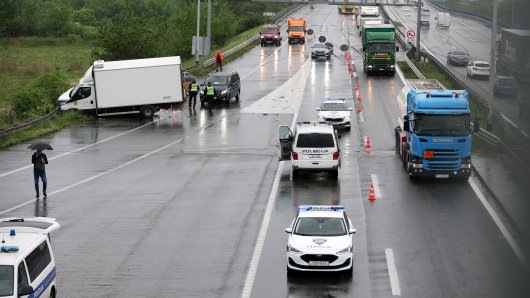In 2012, Croatia needs to step up privatisation of state-run companies and advance the commercialisation of the infrastructure so as to encourage a substantial economic growth, it was said at the presentation of the European Bank for Reconstruction and Development's (EBRD) Transition Report 2011, which was held in Zagreb on Wednesday.
Croatia's economy is recovering sluggishly, and a robust growth requires the restructuring of a number of state-owned companies and reducing state subsidies which EBRD official Peter Sanfey deemed to be still high.
The EBRD expects the continuation of the commercialisation of the infrastructure and the implementation of the energy development strategy so as to make prices more cost reflective and boost energy efficiency.
The report entitled "Crisis and Transition: The People's Perspective" welcomes the completion of Croatia's European Union accession negotiations and the beginning of the implementation of the Economic Recovery Programme. The paper, however, says that Croatia's macroeconomic performance remained weak.
"The economy recorded negative growth in 2010 and only marginally positive growth is expected this year," reads the document, adding that the economy is likely to grow by 0.5 percent this year.
EBRD prioritises financial investments in infrastructure, necessary for the private sector growth, such as investments in the transport, energy security and the local utilities infrastructure when it comes to its policy in Croatia in the next two years, the EBRD director for Croatia, Zsuzsanna Hargitai, said today.
The bank will also help financial programmes for energy efficiency and renewables and preparations for the withdrawal of money from the European Union's cohesion and structural funds.
The "Crisis and Transition: The People's Perspective" publication analyses a series of data collected from surveys of between 1,000 and 1,500 households in 29 transition countries and in five developed countries in Western Europe.
The report shows that the more affected people were by the recent crisis, the less inclination was displayed for democracy and market economy.
Market and democracy have lost support in best-developed transition economies that experienced a deeper decline in the latest crisis than during recessions in early and mid-1990s.
Staple food consumption in transition countries was reduced by 39 percent compared to a 11 percent reduction in Western Europe. Croatia saw a 36-percent reduction in staple food consumption.




































